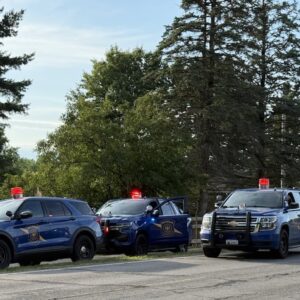Senate Republicans hauled President Donald Trump’s big tax breaks and spending cuts bill to passage Tuesday on the narrowest of votes, pushing past opposition from Democrats and some in their own GOP ranks after a turbulent overnight session.
Vice President JD Vance broke a 50-50 tie to push it over the top. The three Republicans opposing the bill were Sens. Thom Tillis of North Carolina, Susan Collins of Maine and Rand Paul of Kentucky.
House Democratic leaders are meeting Tuesday evening to discuss possible ways to block the final bill, and Minority Leader Hakeem Jeffries vowed to use “all legislative tools and options” to prevent its passage. Pushing the bill beyond Trump’s self-imposed July 4th deadline could involve invoking a “magic minute,” a rarely used tool to extend speaking time after debate has officially ended, which Jeffries did not rule out.
What to know about the Big Beautiful Bill Act:
- The bill is a sprawling collection of GOP priorities: Tax breaks, spending cuts and new money for national defense and deportations are among the top concerns for Republicans. Democrats worry the bill’s reductions to Medicaid will leave millions without care.
- The bill still needs to go back to the House: The bill has to pass the House again before Trump can sign it into law, and the difficulty for Republicans is not expected to let up. Speaker Mike Johnson warned senators not to deviate too far from what his chamber had already approved. But the Senate did make changes, particularly to Medicaid, risking more problems as they race to finish by Trump’s Fourth of July deadline.
-
Congressional Budget Office review: The nonpartisan CBO said Sunday the bill would pile nearly $3.3 trillion onto the nation’s debt load from 2025 to 2034, a nearly $1 trillion increase over the House-passed version of the bill. The analysis also found that 11.8 million Americans would become uninsured by 2034 if the bill passed.
And in other news:
- Trump visited immigration detention facility in Florida: The isolated airstrip in the Everglades is surrounded by mosquitoes, alligators and pythons and can house 5,000 detainees. Dubbed “alligator Alcatraz” by state officials, it’s another example of the administration’s scare tactics to persuade those in the country illegally to leave voluntarily. The White House suggests the facility will be especially secure, given that it is “surrounded by alligators,” and started selling branded shirts promoting the facility.





